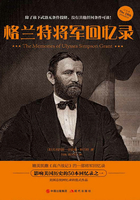The theory of share tenancy was also applied to a situation in which the rental percentage is reduced to a uniform legal maximum, a frequent practice under various agrarian reforms in Asia. With Taiwan chosen as an example, the pertinent laws of the rental share restriction were examined and interpreted. Equilibrium analysis with the addition of a legal constraint on shares was performed. Two hypotheses stemmed from this analysis and tests were constructed for both. The first hypothesis, that there would be compensating payments and tenure rearrangements, was confirmed by the existence of law prohibiting them and of prosecutions of violators of the laws. It served as a prerequisite for the second hypothesis, that of increased farming intensity.
The implications of the second hypothesis, that there would be marginal inequalities of resource allocation as a result of the rental share restriction, was confirmed by observations of both resource reallocation and patterns of output responses. The share restriction in the first phase of Taiwan land reform led to inefficient allocation of resources.
It has frequently been asserted that standard economic theory cannot be applied to conditions in underdeveloped countries. Exceptions have been alleged, "irrational" behavior has been discerned, and new postulates have been advanced to explain whatever observations are regarded as "mysterious." But a useful theory of choice can be derived only if the constraints involved are specified. In the literature of "underdeveloped" countries, recognition and proper treatment of the relevant property right constraints have been rare.
With the many facets of property laws governing resource use, it is, of course, not always easy to define the set of constraints with which to identify the options of choice. But to develop special theories to interpret some allegedly "mysterious" observations without investigating the pertinent property laws is unwarranted. "Disguised unemployment" and the "dual economy" are examples of such special theories. I argue, in Appendix A, that the increase in total yield owing to the share restriction refuted any argument that disguised unemployment had existed in Taiwan agriculture. Furthermore, under the share restriction, reallocation of nonland resources to agriculture as a whole produced a "dual economy." Yet the hypothesis of increased farming intensity was derived entirely from standard economic theory.
A number of issues related to this study could be investigated further. In conjunction with the agrarian reforms in Asia, two important topics call for analysis. The first is a comparative study of the various property laws underlying these reforms. An understanding of their origins, similarities and dissimilarities, the relative costs of enforcing them, and, perhaps more difficult, the economic forces which brought them into being, will throw light on the formation of property rights. A second topic is the derivation of what one might call a theory of fixed tenure, aimed at explaining resource allocation under the condition where the right to farm is exclusively assigned to individual farmers and transfers of this right are prohibited. This theory is needed to understand the Land-to-the-Tiller programs in Taiwan since 1953 as well as similar programs in several Asian countries during the past decade. The same theory may throw light on resource allocation in feudal Europe and Tokugawa Japan.
The theory of share tenancy may also be extended to other industries. Not only are share contracts observed in agriculture, but they are also common among retail stores, beauty salons, gasoline stations, amusement-park rentals, and even the much regulated oil and fishery industries. Of course, when the constraints of competition differ, modifications need to be made in the theory of share tenancy to interpret resource allocation in these industries. One might also apply the theory to a situation in which some resource in a share contract belongs to the state. For example, in Taiwan before 1951, a portion of farmland owned by the government was leased to tenants on a share basis; in mainland China in the 1950s, a popular form of business firm involved state-private cooperation with sharing arrangements.
Finally, more formal analyses of the choice of contractual arrangements and of transaction costs are needed. As was noted in chapter 4, I failed to arrive at general equilibrium solutions, owing to an inability to derive some specific transaction-cost functions and to disentangle some problems of choice theory involving risk. Whatever the contractual arrangements, the proper approach to analyzing land tenure is to investigate the nature of the property laws which define the constraint of competition, and not merely, as has frequently been done, to condemn what may appear to be defective leasing arrangements and to advocate a change in the laws.
APPENDIXES
APPENDIX A
Some Comments on the Hypotheses of Disguised Unemployment and the Dual Economy
A number of writers have attributed the small landholdings in Asia (and particularly in China) to family and social structure. Others have taken the crowded farming condition as evidence of disguised unemployment (where the marginal productivity of peasants is said to be zero or negative). Still others have claimed that whether or not the marginal productivity of peasants is zero, the productivity of labor is lower in agriculture than elsewhere. Various hypotheses of disguised unemployment and the dual economy have been developed in terms of family structure, of unlimited labor supply, of peculiar fixed-factor coefficient production functions owing to the peasants' ignorance of farming methods, and of a "rock-bottom" subsistence theory. Some insist that it is the average product and not the marginal product which underlies farming decisions in underdeveloped areas.[1]















